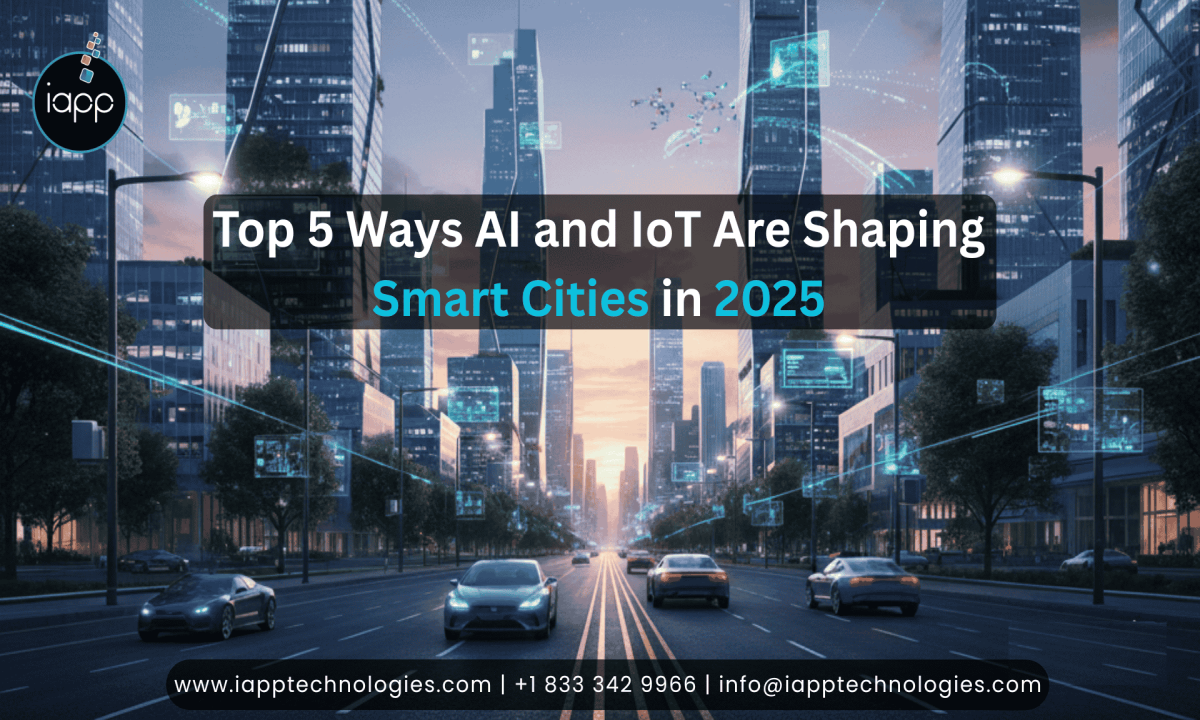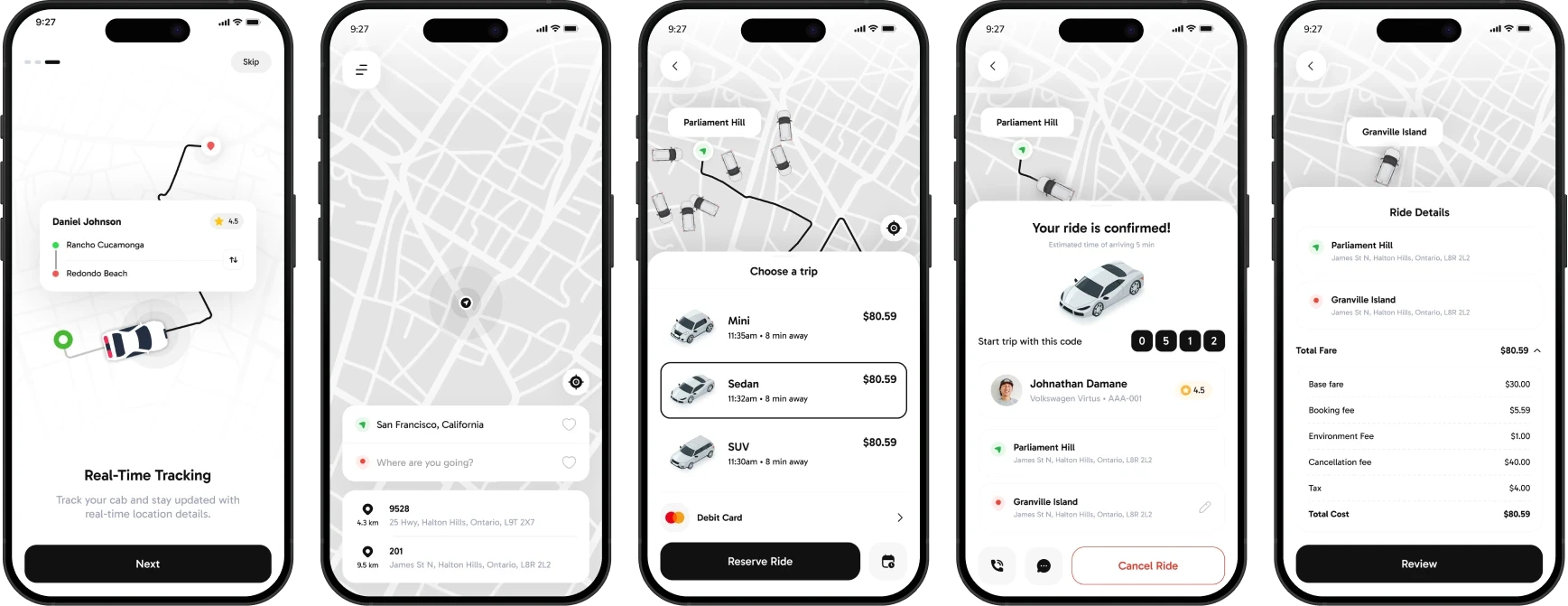


The way cities are changing in 2025 is kind of crazy. AI and IoT are not just fancy words anymore, they are actually making cities smarter, cleaner and more efficient. From traffic to health care, AI and IoT are helping cities work better and serve people faster. Companies like iApp Technologies are helping cities use tech to improve things like roads, energy, safety, basically everything that makes urban life smoother.
Smart cities rely on AI to make sense of huge amounts of data from IoT sensors everywhere. This helps planners and managers make decisions faster. For example streetlights, traffic cameras and buses all give data and AI can use it to reduce congestion and make life easier. In 2025 AI is pretty much the backbone of urban management, and it's kind of wild how fast this is happening. Some cities in Europe and Asia already use this tech, and it's working surprisingly well.

Traffic is still a mess in most cities lost time, pollution and people frustrated. AI traffic systems look at data from signals GPS and mobile apps to predict jams and suggest new routes.
Some cities are even using autonomous traffic drones to see traffic from above. AI reroutes cars, changes lights, and fixes bottlenecks. Mobile app development helps citizens see live traffic updates and alternative routes. It's really useful, though sometimes the app glitches, but still better than nothing.
Some cities are experimenting with AI to prioritize public transport over private cars in rush hours, and even smart parking systems alert drivers to free spots to reduce unnecessary driving. In Singapore, for example, AI traffic monitoring has already reduced congestion in some downtown areas by almost 15%, which is kind of impressive if you think about it.
iApp Technologies recently developed a taxi booking app that integrates AI for real-time route optimization and traffic analysis. The app’s AI chatbot handles most user queries, while GPS tracking keeps riders updated on cab locations. Within three months, ride bookings increased by 40%, demonstrating how AI-powered mobility apps can reduce congestion and improve urban transport.
Want to learn more? Check out our blog. How AI-Powered Taxi Booking Apps Are Transforming Urban Mobility

Garbage collection is a nightmare. Traditional trucks still go the same route no matter if bins are full or empty. IoT sensors in smart bins can track fill levels in real time and alert collection teams only when needed
This saves trips, fuel and money. AI also predicts peak waste time so cities can plan better. AI development makes collection schedules smarter. It's kind of funny how few sensors can make such a big difference. Some cities like Barcelona and Seoul have already implemented smart bins and it reduced operational costs a lot, plus streets stay cleaner.
Even composting and recycling can be optimized using IoT data. Imagine AI telling a collection service, “Pick up these bins first,” and the trucks just follow the smart route. It's really futuristic when you think about trash lol.
Energy use keeps going up and smart grids with AI and IoT are helping. Sensors track usage while AI predicts peak demand, spots problems and balances supply.
Renewables like solar and wind can be integrated into the grid. Smart meters show residents their usage, helping them save energy. Flutter app development allows mobile dashboards so people can monitor their energy and get tips. It's amazing how tech helps save energy but sometimes people just ignore it anyway.
Some cities are experimenting with AI-powered microgrids, where neighborhoods can generate, store, and share energy locally. In San Francisco, microgrids help reduce load on the main grid during peak hours, and residents can see real-time energy stats on their phones. It's kind of futuristic but also very practical.
Safety is really important. AI helps authorities react faster. Analytics spot crime hotspots, and AI cameras detect unusual things in real time
Some cities use AI patrol drones to cover large areas faster than regular patrols. IoT sensors and AI let them respond quicker to incidents. Quality Assurance makes sure these systems work without too many errors. It's kind of nice knowing tech helps cops do better, but yeah, still not perfect.
Even disaster response is being enhanced. In Tokyo, AI predicts potential flood zones based on sensor data and weather info, alerting emergency services before disaster hits. It's kind of wild how tech is now preventing problems rather than just responding.
A big trend in 2025 is digital twins virtual copies of city infrastructure. Planners can simulate traffic, energy, emergencies in real time
IoT sensors feed AI models giving insights never had before. Testing new roads, buildings, transit systems digitally before actual building saves money and avoids mistakes. Blockchain development can secure all the data. It's like a city simulator feels like sci-fi for real.
Cities like Helsinki and Dubai are already using digital twins to plan new districts and monitor energy usage, traffic, and environmental factors. Planners can run “what if” scenarios, like “what if a major road closes?” and see exactly what will happen in the simulation before it affects real people. It's kind of amazing how fast cities are adopting this.

Big tech companies are driving the smart city revolution. Some of the main players include:
Siemens: leads smart grids and traffic solutions
Schneider Electric: specializes in energy management and smart infrastructure
Cisco: builds strong IoT networks for connected devices
IBM: focuses on AI-driven analytics and predictive city planning
Microsoft: offers cloud-based AI platforms for city management
Google Sidewalk Labs: works on urban innovation and AI-powered mobility solutions
Watching these companies gives cities ideas and inspiration. It's kind of exciting to see how cities can become smarter and greener if they adopt these strategies. Some cities even partner with multiple tech companies to get a complete smart city ecosystem running.
iApp Technologies helps cities use AI and IoT for better urban life. Solutions for traffic, energy, safety, and more
AI and IoT Integration: AI traffic management, energy optimization, predictive maintenance iApp makes sure everything works
Digital Twin Development: iApp builds digital twins so planners can monitor, simulate and optimize operations. Saves money and improves citizen experience
Mobile and Web Solutions: iApp makes city services easy to access for everyone. It's impressive how apps simplify life even small things like reporting a pothole or checking traffic updates become way easier.
AI and IoT in 2025 are changing cities for good. Smarter traffic, better waste management, energy grids, and safety. Digital twins give real-time insights and decision making like never before. Cities are ready for a connected smarter future. It's exciting to imagine what cities will look like in a few years it's kind of crazy if you think about it.
As more cities adopt these technologies, we might soon live in urban areas that feel almost like a living organism responding to needs, predicting problems, and improving quality of life for everyone. It's really fascinating how fast this is happening, and its just getting started. Contact iApp Technologies today to explore how you can be part of this smart city transformation.
Q1. What are smart cities in 2025?
Smart cities in 2025 use AI and IoT to make services better like traffic energy safety and even waste management. The idea is to make cities more liveable and sustainable but honestly it's not perfect everywhere yet some places still lag behind.
Q2. How does AI help manage urban traffic?
AI looks at data from sensors GPS cameras and stuff. It predicts traffic jams changes signals in real time and suggest routes. Sometimes it works well other times it's still kind of messy but better than nothing really.
Q3. What is the role of IoT in building smart cities?
IoT connects devices like smart bins street lights and meters. They send data all the time that helps city managers make decisions faster. Without IoT a lot of the smart stuff wouldn't even be possible.
Q4. Which sectors benefit the most from AI and IoT in cities?
Transport, energy, healthcare and public safety get the biggest gains. Other industries also benefit cause infrastructure is smoother and digital services work better. It's still a work in progress in some cities.
Q5. How can cities start adopting these technologies?
Cities can work with experts like iApp Technologies who make AI solutions digital twins and smart apps. They help authorities improve services and city life. It's actually not that hard to start just takes some planning and investment.
Enterprise AI Agents Use Cases and Benefits 2026
How AI in Fintech App Development is Transforming Digital Payments
How Much Does It Cost to Build an E-commerce Mobile App Like Amazon?
Future of Ride Hailing with AI Taxi Booking Apps
 Jagwinder Singh
Jagwinder Singh